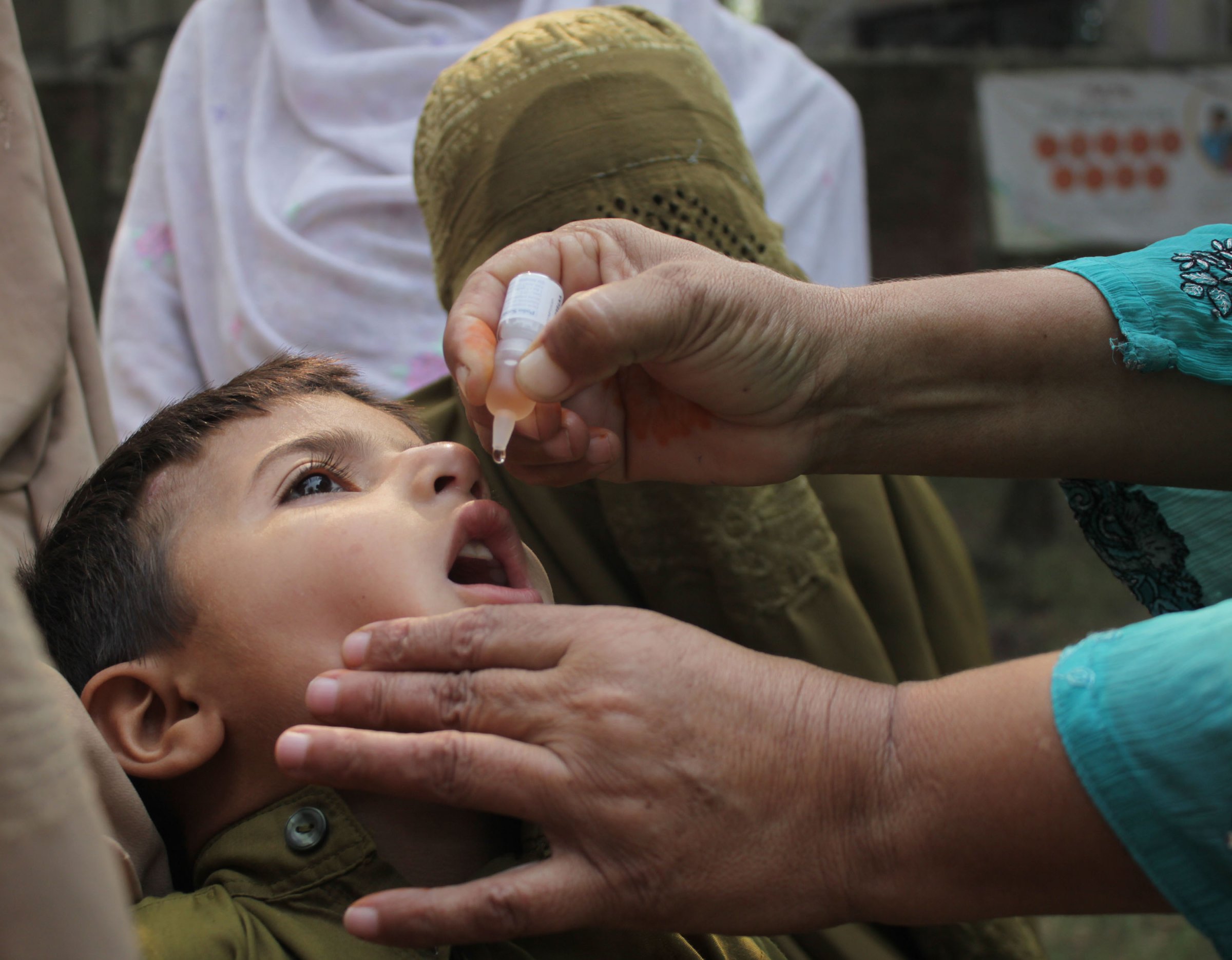
There’s a special place in hell for the suicide bomber who killed 16 people at a polio vaccination center in Quetta, Pakistan on Jan. 13. There’s a place too for the Pakistani Taliban spokesman who claimed credit for the attack—as well as for his whole blood-soaked organization.
The Taliban have been targeting polio workers for several years now, insisting that no children can be vaccinated until U.S. drone strikes in the country stop. They have also spread rumors that the vaccine contains HIV or is designed to sterilize Muslim girls, and that vaccinators are CIA spies in disguise—a fiction that gained currency after agents pulled just that masquerade while hunting for Osama bin Laden.
Still, after decades of work, victory might be at hand in the fight to eradicate polio. As recently as 1988, the disease was endemic in 125 countries and paralyzed or killed 350,000 children every year. By last year, polio was down to just two countries—Pakistan and Afghanistan—with a total of 70 cases between them.
Read more: How the World Is Improving Children’s Health (And Where We’re Falling Short)
Pakistan, which had 51 of those cases, is the center of the fight to bring the global case count down to zero. On Jan. 14, the country completed a National Immunization Day, distributing one dose of vaccine to each of the 35.5 million children under five in the country. A second dose will follow in March, and three regional immunization days in February, April and May aim to reach 5 million children each time. In all, 86 million doses of vaccine could be delivered and administered. Armed forces were dispatched last year to contain the Taliban when vaccinations are under way and imams have been enlisted to spread the word that the drops are safe and to remind parents that the Qur’an instructs them to safeguard the health of their children.
But if the campaign is going to succeed, hearts and minds in the tribal regions will also have to be changed. That’s something Aziz Memon, a leading Pakistani textile manufacturer and a chairman of Rotary International’s campaign to wipe out polio, knows something about. It is Rotary that got the global eradication movement started in 1988, and has done more than any other organization to see it through, raising and distributing $1.5 billion to vaccination efforts over the years.
Read more: What It Will Take to End Polio
In a recent conversation with TIME, Memon described an experience he had when he visited a hospital in Peshawar to drop off some wheelchairs and took a break to have tea and a biscuit. A hospital worker told him that a Taliban chief and his 18-month old son—who had been stricken with polio and lost the use of his legs—were in a room nearby. This was the kind of man who could make a difference if he could be persuaded to support vaccinations. Memon went into the room to have his tea and chat with the man while the child played on the floor.
Eventually the topic of the boy’s illness came up and Memon chose to tell the father a hard and candid truth. “If you had given this baby two drops,” he said, “he’d be running now.”
The man, who was wearing a gun on his hip, grew visibly angry. “Are you God?” he demanded. “It was his destiny to suffer this way, and now you are challenging me.”
Memon apologized for giving offense and the two fell silent. At length he noticed that the room had become overly hot and that the boy, who was wearing two sweaters, looked uncomfortable. He recommended that the father remove the sweaters but the father refused, saying that his family came from a cold, mountainous region where the boy was used to bundling up, and he didn’t want him to get flu or pneumonia. Memon saw his moment.
“But wouldn’t that be his destiny?” he asked. “Now I am challenging you.”
The Taliban chief, hardly a sympathetic figure, nonetheless did what an ordinary father would do, which was to grow teary. “You said you could have given him two drops before,” he said. “Could you give him four drops now?”
Memon nodded his head. “No,” he said. “It’s too late.”
Nonetheless, Memon did extract a promise from the man: that he would take some vaccine with him when he left the hospital, vaccinate the rest of his family and offer the drops to his neighbors as well. The man promised he would, then asked Memon for his cellphone number, explaining that he would be sending him a message within the week, and when he got it, he was to read and delete it. Memon agreed. Six days later a text arrived saying that the man had fulfilled the promise he’d made. Memon, as he’d promised in return, erased the message from his phone.
There may never be a way to verify Memon’s tale, but even if it is destined to become merely a part of polio apocrypha, its larger lesson is important. In a world of the bloody and bad, it may take only a single human exchange to produce bits of fragile good.
More Must-Reads from TIME
- Why Biden Dropped Out
- Ukraine’s Plan to Survive Trump
- The Rise of a New Kind of Parenting Guru
- The Chaos and Commotion of the RNC in Photos
- Why We All Have a Stake in Twisters’ Success
- 8 Eating Habits That Actually Improve Your Sleep
- Welcome to the Noah Lyles Olympics
- Get Our Paris Olympics Newsletter in Your Inbox
Write to Jeffrey Kluger at jeffrey.kluger@time.com